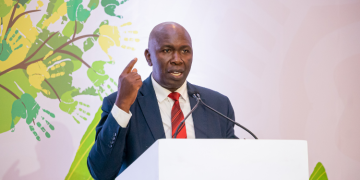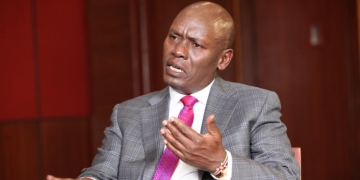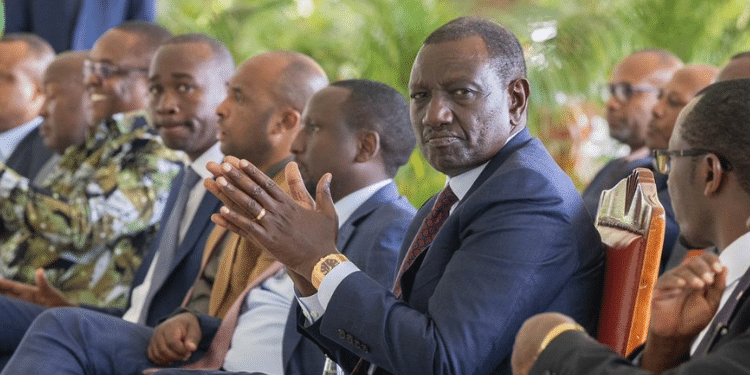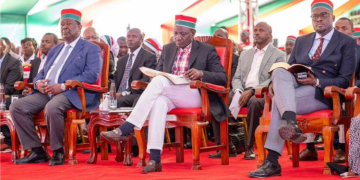The Central Organization of Trade Unions (COTU-K) Secretary General Francis Atwoli has strongly cautioned the National Treasury Cabinet Secretary, John Mbadi against implementing International Monetary Fund’s (IMF) loan conditionalities blindly.
In a statement dated August 14, Atwoli urged Mbadi to carefully consider the potential impacts of these conditions on Kenya’s economy, noting that following IMF advice without scrutiny has historically led to adverse consequences for citizens and workers.
“It is the position of COTU (K) that if the new National Treasury Cabinet Secretary adopts a rigid approach and implements 100% of the IMF’s economic and finance adjustments advice, then such an approach will not succeed,” Atwoli said.
“We call upon the new National Treasury Cabinet Secretary to approach IMF conditionalities cautiously and with a deep understanding of their potential impact on ordinary Kenyans. In fact, the far we stay away from the IMF and its accomplices, the better for this country.”

Atwoli Warns Mbadi on Implementing IMF Loan Conditions Blindly
Atwoli further mentioned that the fund conditionalities often involve measures that place undue financial strain on the citizenry, primarily through increased taxation and the so-called austerity measures.
“These actions not only lead to social unrest but also trigger widespread demonstrations as citizens grapple with the negative impacts on their livelihoods,” he said.
Also Read: Kenya Submits New Economic Plan to IMF After Fall of Finance Bill
“The advice given by the IMF, if followed without adjustment to local contexts and needs, ultimately results in unrest, turmoil and thus social upheavals.”
Furthermore, the COTU SG warned against falling prey to tactics that would worsen the tax burden on Kenyans and create social upheavals.
He called upon Mbadi to draw an important lesson from the regime of former President Mwai Kibaki, which approached IMF recommendations with a balanced perspective, ensuring that the welfare of the citizens remained a priority.
This comes after US politician, Ilhan Omar, a Democratic representative serving in Minnesota, on July this year raised alarm over austerity measures imposed by IMF on Kenya that have since led to a higher cost of living in the country.
In a statement, Omar explained that the measures often affect the most vulnerable in society and result in dissatisfaction among its citizens.
“It’s also crucial to recognize that the International Monetary Fund’s austerity conditions have contributed to the economic hardships facing Kenyan citizens. These measures often disproportionately affect the most vulnerable populations and can exacerbate social unrest,” the statement read in part.
Also Read: IMF Gives Way Forward After Ruto’s Move to Fire CSs
Kenya Funding Program
The IMF program was expected to provide about one-third of the government’s budgeted net external financing or $976 million (Ksh124 billion) in external funding in fiscal 2025.
The reform program supported by the Extended Fund Facility (EFF) and the Extended Credit Facility (ECF) arrangements was approved by the Fund Executive Board on April 2, 2021.
Initially approved for 38 months, the program was then extended by 10 months on July 17, 2023.
In view of exceptional balance of payments pressures, a further augmentation of about $941 million was approved on January 17, 2024, bringing total IMF funding under the program to about $3.9 billion (Ksh 504 billion).
According to the Fund, this helped alleviate market concerns which allowed Kenya to access the bond market and partially roll over the maturing Eurobond.
Follow our WhatsApp Channel for real-time news updates!
https://whatsapp.com/channel/0029VaB3k54HltYFiQ1f2i2C










































































